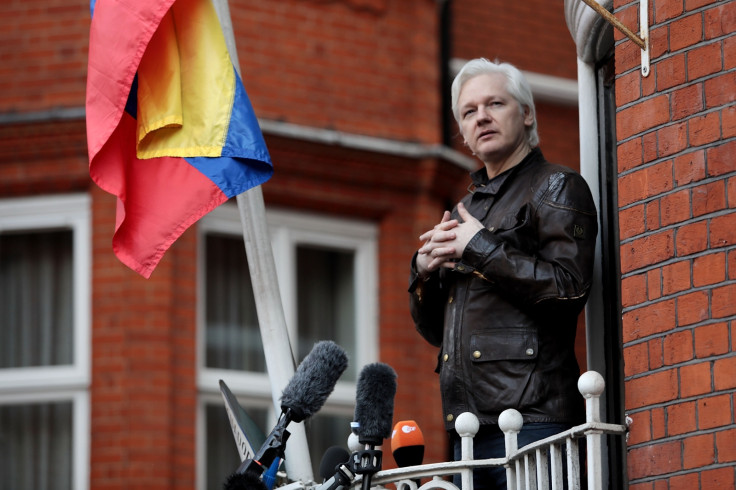Julian Assange's hopes for arrest warrant to be dropped dismissed as 'strange and absurd'
KEY POINTS
- Assnage launches fresh appeal in court to have warrant for skipping bail dropped.
- Wikileaks founder has been holed up in London's Ecuadorian embassy since 2012.
- Decision on whether to quash warrant to be made on 6 February.
Prosecutors have dismissed Julian Assange's attempt to have his arrest warrant for jumping bail dropped as "absurd, strange and untenable".
Assange, who has been holed up inside the Ecuadorian Embassy in London since 2012, has launched an appeal at Westminster Magistrates Court to have his UK arrest warrant rescinded.
Assange's lawyer, Mark Summers, told the court the warrant has "lost its purpose and function" now he is no longer wanted by Swedish authorities over sexual assault allegations.
The Wikileaks founder entered the embassy in 2012 over fears he would be extradited to the US to face espionage charges after he leaked leak of thousands of classified documents relating to wars in Iraq and Afghanistan.
In May 2017, Swedish prosecutors announced theywill drop their sexual assault investigation against Assange, but he still faces arrest if he leaves the building for skipping bail.
Ahead of the hearing at Westminster Magistrates Court, a spokesperson for the Crown Prosecution Service (CPS) told Reuters: "He is seeking to have the warrant of arrest discontinued because the Swedes have confirmed that the extradition warrant is no longer live.
"He is seeking that therefore the warrant of arrest should be taken out as well."
When asked if a successful appeal would mean Assange could leave the embassy without being arrested, the spokesperson added: "Hypothetically yes, that would be our interpretation."
However, CPS lawyer Aaron Watkins told the court it would be "absurd" for Assange to be "effectively rewarded with immunity" by evading judicial proceeding for a long enough time that they "fall away".
A decision on whether to quash Assange's arrest warrant is due to be made at the same court on 6 February.
Assange was recently granted Ecuadorian citizenship as part of a bid to apply for diplomatic immunity so he can leave the embassy without being arrested.
The request was rejected by the UK Foreign Office, adding in a statement: "Ecuador knows that the way to resolve this issue is for Julian Assange to leave the embassy to face justice."























